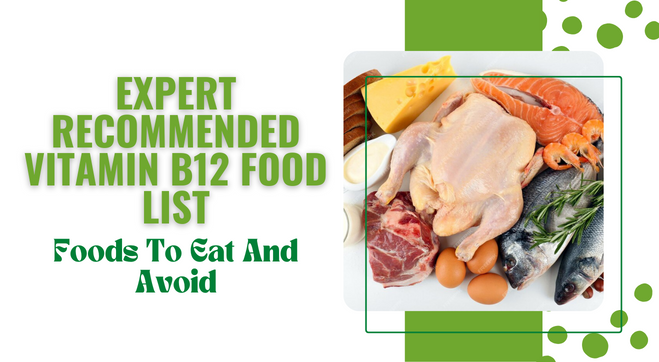Nutrient-Rich Superfoods: Your Curated List of Foods Rich in Vitamins and Minerals
HealthcareOnTime
2023-10-03
2023-10-04
3 Min Read

As kids, we all have learned in books how essential vitamins are for our health. But we often forget to include those sources of vitamins and minerals in our diet. As much as you need air and water for your survival, vitamins, and minerals play a fundamental role in maintaining your overall well-being. Although you may need vitamin-rich foods in relatively small amounts, their health relevance can’t be understated.
Why are Vitamins Necessary in our Diet?
Vitamins are organic compounds that work as coenzymes in contemplating various biochemical reactions in the body. Vital for carrying out various functions, these vitamin and mineral-rich foods help your body get enough energy for immune function and cell growth. Minerals, on the tandem side, are inorganic compounds that act as cofactors for enzymatic reactions. Your body needs foods rich in vitamins and minerals to keep up with various bodily functions, including fluid balance, bone health, oxygen transport, etc.
Did you know:
- Your body can’t synthesise vitamins, except vitamin D, so you need to get them through your vitamin diet.
- Most Common Dietary Supplements:
- Multivitamin-mineral supplements: 24.0% for ages 20–39, 29.8% for 40–59, and 39.4% for 60 and over [1]
- Vitamin D supplements: 6.7% for ages 20–39, 17.4% for 40–59, and 36.9% for 60 and over [1]
- Omega-3 fatty acid supplements: 5.4% for ages 20–39, 12.5% for 40–59, and 21.8% for 60 and over [1]
What are the Most Important Vitamins for your Body?
Although there is a long list of vitamins out there, some are relatively more important for the body to function well. These Vitamin food chart includes:-
- Vitamin A: Vitamin A has a significant role in maintaining the health of your teeth, soft tissue, mucus membranes, and skin. It is also revered as retinol because it secretes the pigments in the eye’s retina. It also ensures a healthy pregnancy in women.
- Vitamin B1: The ability of vitamin B to metabolise fat and provide energy to the body makes it the most important of all vitamins food list.
- Vitamin B2 (Riboflavin): This antioxidant helps keep your blood and nerve cells healthy by fighting free radical damage. It also helps make DNA that carries genetic information for development and function. Deficiency of vitamin B12 can cause a condition called anaemia that makes you feel weak and tired.
- Vitamin B3 (Niacin): Niacin, or vitamin B3, is a micronutrient that the body needs for nervous system function and metabolism. As your body can’t produce vitamin B3 on its own, you need to obtain it from foods that contain vitamin B3, such as legumes, seeds, nuts, etc.
- Vitamin B5 (Pantothenic acid): It breaks down fat and carbs into energy. A healthy source of B5 vitamin-enriched foods also helps produce RBCs and sex-related hormones in the adrenal glands. It healthified your digestive tract and helps your body utilise vitamin B12.
- Vitamin B6 (Pyridoxine): Vitamin B6 supports brain health. It helps transport oxygen around the body and promotes a healthy immune system. It is extremely beneficial in producing neurotransmitters, such as serotonin and dopamine.
- Vitamin B7 (Biotin): The most common vitamin known to promote healthy hair, skin, and nails is Vitamin B7. Since it is not water-soluble, it can get flushed out of the body. So you need to ensure daily intake of this vitamin food source.
- Vitamin B9 (Folate): Folate works closely with vitamin B12 to support RBC formulation. It also ensures the healthy function of the nervous system.
- Vitamin B12 (Cobalamin): Our body does not make vitamin B12, so we need to get it from vitamin-rich fruits and veggies. It helps make DNA and produce healthy RBCs. For individuals following a vegetarian diet, obtaining B12 can be challenging due to its scarcity in plant-based foods. Exploring Vegetarian Vitamin B12 Sources, such as fortified cereals, non-dairy milk, eggs, and dairy, becomes essential. Alternatively, B12 supplements offer a reliable solution.
- Vitamin C: This antioxidant helps repair body tissue for optimal growth, and maintain healthy skin, blood vessels, and bones. It is also responsible for fighting free radical damage in the cells.
- Vitamin D: Your body makes vitamin D for calcium absorption. It makes healthy bones and boosts immune system health while protecting free radical damage.
- Vitamin K: Vitamin that helps the blood to clot and prevent bleeding. Vtamin K keeps your heart and bones healthy.
Vitamin-Rich Foods List
If you’re looking for multivitamin natural sources, this all vitamins food list can actually help:-
Sources of Minerals in Food Chart
Minerals have a host of benefits for overall health. From promoting normal growth and development of cells to aiding in blood clots, minerals do a lot for our body.
Here are some mineral-rich foods you can include in your diet:-
- Calcium: Almonds, cashews, milk, carrots, broccoli, papaya, and garlic
- Chloride: Table Salt, peanuts, milk, soy sauce, and unprocessed meat
- Iodine: Iodised salt and seafood
- Sodium: Cheese, soy sauce, table salt, and unprocessed meat.
- Iron: Dried fruits, green leafy vegetables, baked potato, meat, eggs, whole and enriched grains
- Sulphur: Onion, cheese, nuts, wheat germ, eggs, cucumbers, broccoli, cauliflower, and corn
- Magnesium: Dried fruits, seafood, chocolates, pineapple, and green leafy vegetables.
- Potassium: Tomatoes, papayas, bananas, lemons, raisins, pineapple, spinach, brussels sprouts, legumes, and cucumbers.
- Zinc: Cashews, almonds, peanuts, beans, dark meat, and lentils.
- Phosphorus: Mushrooms, cashews, carrots, almonds, oats, and beans.
Why is Vitamin Deficiency Serious?
Vitamin deficiency is a serious health concern, as food items rich in vitamins play a crucial role in maintaining our overall well-being. To understand the significance of combating vitamin deficiencies, it's important to opt for vitamin deficiency tests. Your healthcare provider may also recommend a Complete Vitamin Profile Test if you are struggling with multiple health complications or are at a higher risk. In addition, a vitamin source chart or list of vitamins in fruits and vegetables, provided by your doc or available on internet can serve as an eye-opener, highlighting the abundance of vitamins in nature's bounty.
Different vitamins are found in various foods, making it essential to maintain a balanced diet rich in diverse sources. For example, vitamin C can be obtained from citrus fruits, while vitamin D can be synthesised through sunlight exposure. Foods that contain vitamins, from vitamin-rich fruits like oranges and berries to vitamin-rich vegetables such as broccoli and spinach. Multivitamin food items provide a convenient way to ensure you're meeting your daily requirements. A vitamins and minerals in food chart can help individuals identify foods high in vitamins and minerals, making it easier to maintain a balanced diet.
A deficiency in vitamins can lead to a range of health issues, including weakened immunity, fatigue, and various diseases. Thus, understanding the sources of all vitamins and the role they play in our health is essential for promoting overall well-being. Incorporating vitamin food items and whole food multivitamins into your diet can help prevent these deficiencies and keep you healthy.
Multivitamins vs Whole Foods - Which is More Effective for Meeting Your Nutritional Needs?
A well-balanced diet plays a crucial role in maintaining good health, and vitamins are essential for our bodies to function properly. But the debate between multivitamins and whole foods continues. Many people turn to multivitamin supplements to ensure they're meeting their nutritional needs. However, whole foods offer a natural and more effective way to obtain essential vitamins.
Whole foods are rich in nutrients. Fruits, vegetables, lean proteins, and whole grains provide a wide array of vitamins, minerals, and antioxidants. These foods are packed with not just individual vitamins but also other beneficial compounds that work synergistically for overall health.
While multivitamins can be convenient, they often lack the natural sources and combinations found in whole foods. Some vitamins are best absorbed when consumed with certain foods, and whole foods provide this advantage. They also offer dietary fibre, which supports digestion and can't be replicated in a pill.
To get a comprehensive list of vitamins, one can incorporate foods like spinach (vitamin K), citrus fruits (vitamin C), and dairy products (vitamin D). A balanced diet consisting of whole foods ensures you receive all the essential vitamins naturally, making it the most effective way to meet your nutritional needs. While multivitamins have their place for certain individuals, whole foods remain the gold standard for a healthy vitamin-enriched diet.
A Note From HealthcareOnTime
It is important to get your daily count of vitamins and minerals in food or you may experience deficiencies. The deficiency of these essentials can cause noticeable side effects such as tingling or numbness, fatigue, weakness, mouth ulcers, poor vision, and muscle cramps. We strictly advise seeking your healthcare, if you’re experiencing these signs.
We at HealthcareOnTime are your go-to solution for availing blood tests online in a convenient manner. Whether you are looking for lab tests online or health checkup packages, you won’t have to look beyond HealthcareOnTime!
Disclaimer
The information listed here is strictly for educational purposes and is not intended to offer personal medical advice. Do consult your physician for any questions you may have regarding a medical condition. It’s not advised to disregard professional medical advice or delay in seeking it because of any information listed here. The Nutrition Source does not recommend or endorse any products.
Sources
Ref Links:





























































